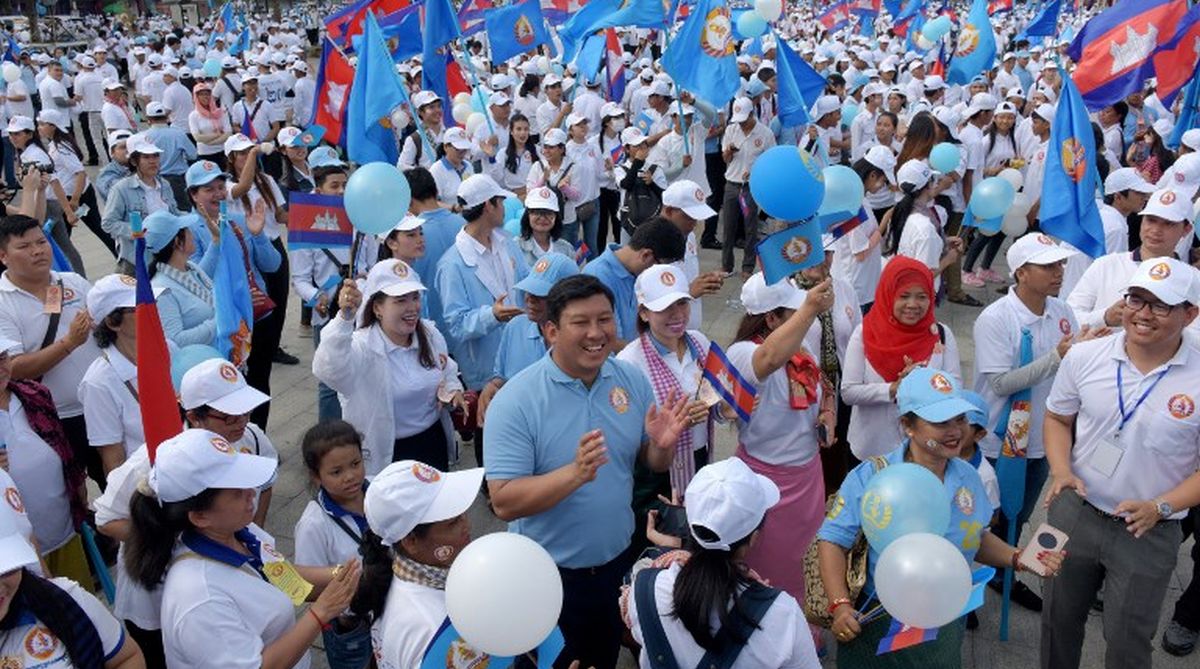Cambodian Prime Minister Hun Sen is expected to easily win another five years in power, having ruled the country for over 30 years.
His Cambodian People’s Party (CPP) will be facing off against 19 other parties in the upcoming election, some small and little-known, and none believed to pose a significant threat to the strongman’s power.
Advertisement
The CPP was earlier expected to face a fierce challenge from the Cambodia National Rescue Party (CNRP), which had performed better than expected in Cambodia’s last general election in 2013, winning 44 per cent of the vote.
However, the party’s leader, Kem Sokha, was abruptly arrested in October last year on charges of treason for allegedly plotting a “colour revolution” to overthrow the government with the help of the United States. The party itself was disbanded the following month and its seats in the National Assembly divided between other parties, sparking international outrage.
Funcinpec, the largest party with the CNRP out of the race, holds 41 seats in the National Assembly, a little over half the number held by the CPP, and its leader, former Prime Minister and Prince Norodom Ranariddh, was severely injured in a car crash last month.
The government has also cracked down on independent and critical media organisations, many of which were forced to close. English-language paper, The Cambodia Daily, was among the organisations shuttered after it failed to pay an exorbitant $6.3 million in back taxes.
Widespread concerns about the legitimacy of the election have led some foreign backers, including the US and European Union, to withdraw funding. Others, including China, have continued to support it.
Japan announced on Wednesday that it will not be sending observers to monitor the election, despite having provided millions in aid to the National Election Committee (NEC) previously, The Phnom Penh Post reported.
Commenting on Japan’s decision in a Facebook post, Sam Rainsy, an exiled former leader of the CNRP, asserted that “only a small group of communist and authoritarian countries, which have interests in supporting Hun Sen’s killing of democracy in Cambodia, could endorse this sham election.”
“Japan’s withdrawal will alert those who still intend to go to vote [and] prompt them to re-consider and boycott this fake election like the vast majority of the Cambodian people who will do so because they love democracy, freedom and justice,” he said.
The NEC said Japan’s move was “just diplomatic language to avoid being in the top position facilitating the election in Cambodia,” and pointed out that over 160,000 representatives of political parties and NGOs will be monitoring the polls alongside 900 national and international journalists and 213 foreign observers, The Phnom Penh Post reported.











